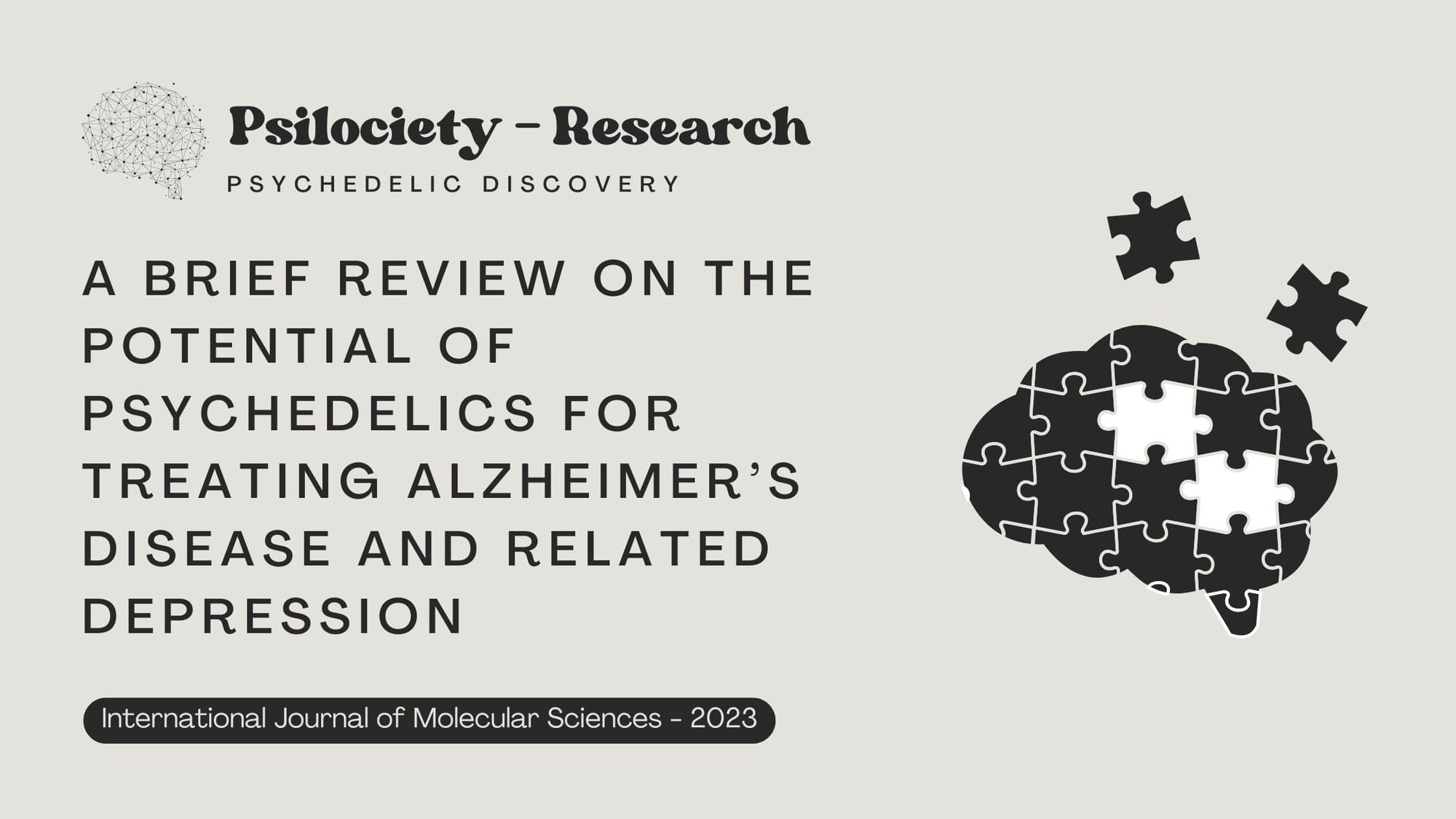A Brief Review on the Potential of Psychedelics for Treating Alzheimer’s Disease and Related Depression
This review investigates the potential role of psychedelics in addressing Alzheimer’s disease and associated depression, focusing on their neurochemical effects and therapeutic mechanisms.

Title & Introduction
- Paper Title: A Brief Review on the Potential of Psychedelics for Treating Alzheimer’s Disease and Related Depression
- Published In: International Journal of Molecular Sciences, 2023
- Authors: Alexander Pilozzi, Simmie Foster, David Mischoulon, Maurizio Fava, Xudong Huang
- Objective: This review investigates the potential role of psychedelics in addressing Alzheimer’s disease (AD) and associated depression, focusing on their neurochemical effects and therapeutic mechanisms.
- Importance: With limited treatments for Alzheimer’s and the growing societal burden of the disease, innovative approaches such as psychedelic-assisted therapies could offer novel avenues for symptom relief and potentially slow disease progression.
Summary & Takeaways
Key Takeaway: Psychedelics might provide a novel therapeutic strategy for Alzheimer’s disease and its depressive symptoms by leveraging their unique neurochemical effects.
Practical Application: Future research should focus on refining dosing strategies, particularly microdosing, to maximize benefits while minimizing risks.
Key Background Information
- Context: Alzheimer’s disease affects 60–80% of dementia patients and is characterized by amyloid plaques, neurofibrillary tangles, and neuroinflammation. Current therapies are limited to symptomatic relief with moderate efficacy.
- Hypothesis: Psychedelics, through mechanisms such as serotonin receptor modulation and neuroplasticity, may alleviate AD-related cognitive decline and depressive symptoms.
Methodology
- Study Design: Literature review of preclinical and clinical studies on psychedelic compounds.
- Participants: Data were derived from various studies on human and animal models; no new clinical trial was conducted in this review.
- Intervention/Exposure: Investigated compounds included psilocybin, LSD, mescaline, DMT, and ketamine, focusing on their neurochemical impacts.
- Controls: Comparative efficacy and side effects of psychedelics versus traditional therapies were evaluated.
- Duration: Varied across reviewed studies; findings often highlighted acute and long-term effects.
Key Findings
Primary Outcomes:
Psychedelics primarily target serotonin receptors (e.g., 5-HT2A, 5-HT2C) and exhibit potential to reduce AD symptoms via:
- Enhanced neuroplasticity (e.g., increased dendritic spine density).
- Reduction of neuroinflammation.
- Modulation of amyloid-beta burden and cognitive decline.
Secondary Outcomes:
- Ketamine, unlike classical psychedelics, showed NMDA receptor-mediated effects but had mixed results in memory and mood improvement.
- Microdosing LSD and psilocybin improved mood and cognitive focus without hallucinogenic effects in anecdotal and preliminary studies.
Interpretation & Implications
- Conclusion: Psychedelics show promise in treating Alzheimer’s and related depression by enhancing neuroplasticity, reducing inflammation, and modulating neurotransmitter systems.
- Implications: While results are preliminary, psychedelics could complement current AD therapies and address treatment-resistant depression. Microdosing might offer a safer administration route.
- Limitations: Many studies are preclinical or lack rigorous controls. Long-term effects and safety profiles require further exploration.
Researchers & Publication
- Researchers: Alexander Pilozzi, Simmie Foster, David Mischoulon, Maurizio Fava, Xudong Huang
- Publication Name: International Journal of Molecular Sciences
- Study URL: https://doi.org/10.3390/ijms241512513

